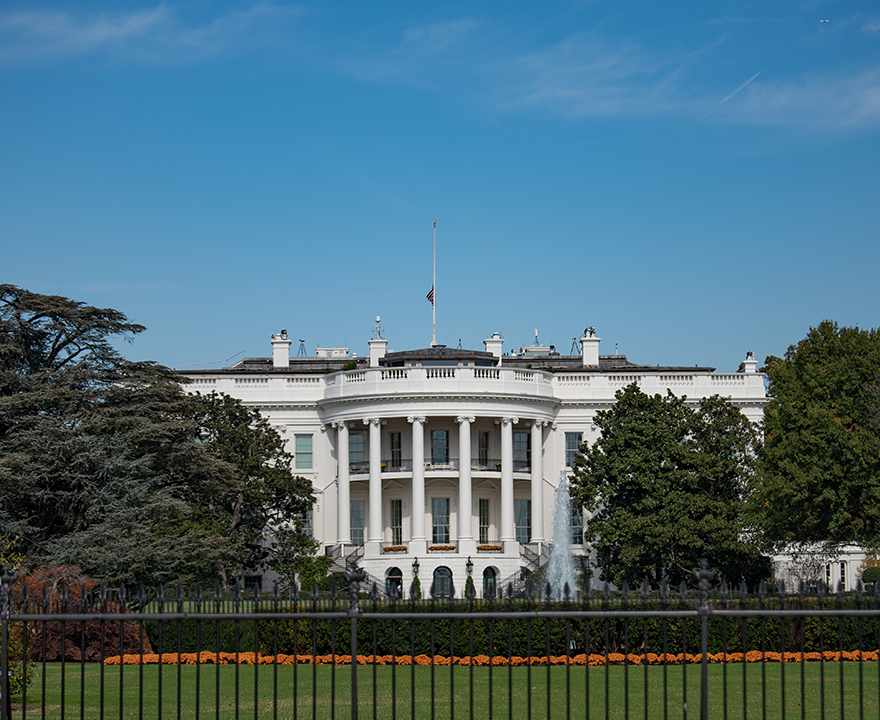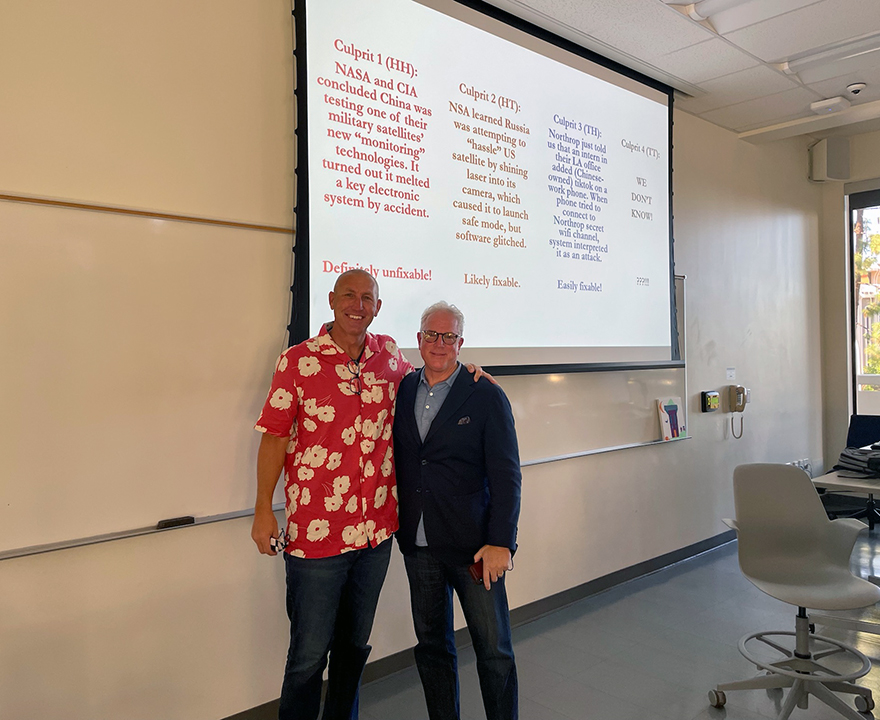Inside the Oval Office

Inside the Oval Office
- December 7, 2021
- Political science undergrad class takes a deep dive into the inner workings of nation's highest office, ends quarter with crisis simulation
-----
 Picture the following: U.S. contact with a top-secret military satellite is lost.
The President assembles a leadership team in the Situation Room to handle the crisis
and develop contingency plans. Who’s there, how do they interact and what does the
fallout look like? The students enrolled in Political Science 129A “Inside the Oval
Office” spent three days role-playing the above scenario as part of their end of course
project. Taught by Matthew Beckmann, political science professor, the course is designed
to equip students with effective decision-making techniques as observed through the
lens of the nation’s highest office. The upper division course focuses on skills that
can be learned and practiced daily and put to work in times of crises, says Beckmann.
Picture the following: U.S. contact with a top-secret military satellite is lost.
The President assembles a leadership team in the Situation Room to handle the crisis
and develop contingency plans. Who’s there, how do they interact and what does the
fallout look like? The students enrolled in Political Science 129A “Inside the Oval
Office” spent three days role-playing the above scenario as part of their end of course
project. Taught by Matthew Beckmann, political science professor, the course is designed
to equip students with effective decision-making techniques as observed through the
lens of the nation’s highest office. The upper division course focuses on skills that
can be learned and practiced daily and put to work in times of crises, says Beckmann.
“I want my students to see that 'leadership' is not a personal trait or mystical quality; rather, it is smart, effective approaches to everyday work: managing people; asking questions; weighing options; building coalitions; and making decisions,” he says. “My goal is for students who finish this seminar to know they can work with a talented team to handle unfamiliar problems, overcome familiar challenges, and capitalize on singular opportunities – because they can, and should.”
After seven weeks of readings, in-class discussions and debates, the students were given the crisis scenario to wade through together. They picked their roles – from military advisor, communications director and White House counsel to members of Congress and more – and worked hard to clarify their objectives and arguments so that the “president” would hear what was needed from each to determine an effective course of action. To help guide the discussion, Beckmann enlisted the help of Rob Linn, an executive coach and senior partner with the O’Brien Group who drew from decades of experience working with entrepreneurs and executives to give student expert perspective on best practices and biggest pitfalls in the team decision-making process.
“Rob and I really emphasized the value of a good process. We explicitly look to question our assumptions, to consider counterarguments, to point out risks, uncertainty, contradictions, and the like,” Beckmann says.
"The students, without exception, were smart, hard-working, and most importantly, intellectually curious,” says Linn. “They energized me and will energize any organization they join in the future."
For Christine Halladjian, a political science major enrolled in the class who played the role of honest broker, the simulation provided an opportunity to put newfound skills into action.
“I chose the role of an honest broker which meant I had to facilitate the meeting, ask questions and be skeptical,” she says. “I’m a very shy student but I chose this role to push myself - and honestly I surprised myself. When a person was going on a tangent and other people didn’t have the opportunity to talk yet, I was able to interject and steer the conversation back on track. I never knew I was capable of doing that.”
With career interests in diplomacy, she says the experience was invaluable.
“I learned how to facilitate a productive conversation without interjecting with my own ideas . I learned how to compromise with seven people in a group which could be challenging at times – something I can apply to future work and life,” she says. “I now know I am capable of a lot more than I give myself credit for.”
-pictured right: Beckmann and Linn
-----
Would you like to get more involved with the social sciences? Email us at communications@socsci.uci.edu to connect.
Share on:
Related News Items
- Careet RightAmid economic turmoil, Trump leans into deportation fight as 'battle they can win'
- Careet RightThe President's Day: Managing Time in the Oval Office
- Careet RightPresident Trump's visit to view wildfire damage leaves questions about what federal aid will come
- Careet RightReady for takeoff
- Careet RightElection 2024: What the latest results show in Orange County's congressional races


